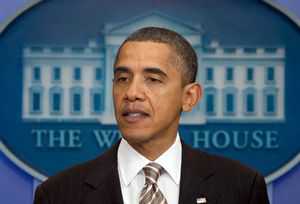ANKARA (Reuters) – Turkish Prime Minister Tayyip Erdogan may face probing questions about whether NATO member Turkey is tilting away from the West and toward Iran when he meets U.S. President Barack Obama next week.
Erdogan, whose party has Islamist roots, visits Washington at a time when Ankara’s efforts to cultivate stronger ties with Tehran have raised concerns among Western allies.
The two leaders are expected to discuss Iran’s nuclear program and whether Turkey can send more troops to Afghanistan to support an increase in U.S. forces Obama announced this week.
“Iran is going to be the key test in terms of Turkish-U.S. ties,” said Ian Lesser of the German Marshall Fund think-tank.
In U.S. eyes, Turkey’s blossoming relations with Iran have eased Tehran’s isolation when Washington is trying to pressure the Islamic republic into a deal to satisfy the West that there was no covert program to become a nuclear weapons state.
Last month, Erdogan visited Tehran to sign gas and trade deals and hosted “good friend” Iranian President Mahmoud Ahmadinejad at a summit of Islamic countries in Istanbul.
The Turkish leader dismayed allies when he called sanctions imposed on Iran “arrogant” and said countries opposing its atomic work should give up their own nuclear arms.
Obama, who visited Turkey in April, has said Ankara can play a positive role in easing the dispute with Iran.
“The Obama administration will want to make sure Ankara uses its influence to deliver some tough messages to Iran,” Lesser said.
Other examples of what a European diplomat in Ankara called Erdogan’s “worrying behavior” include the souring of ties between Turkey and Israel, and Erdogan’s support for Sudan’s indicted President Omar Hassan al-Bashir.
AFGHANISTAN
Analysts say that despite differences, Turkey remains an invaluable U.S. ally as Washington needs its help to confront challenges in Afghanistan, Pakistan, Iraq and the Middle East.
Turkey is a major transit route for U.S. troops and equipment destined for Iraq, and Incirlik air force base could play a key role as U.S. forces are drawn down.
“The American side does not seem to have the intention of rocking the boat in relations with Turkey because Turkey is too important,” said Semih Idiz, a columnist for Milliyet newspaper.
“The issues related to Iraq, Afghanistan and Caucasus all matter a great deal to the United States,” Idiz said.
Obama announced on Tuesday he was sending 30,000 more U.S. soldiers to Afghanistan. Washington wants allies to follow suit.
Turkey has some 1,750 troops in and around Kabul who are not engaged in combat operations and Ankara has long resisted pressure from Washington to offer more combat troops.
U.S. ambassador to Turkey James Jeffrey said Obama and Erdogan would discuss the issue, adding: “We’re expecting flexibility on the definition of the mission Turkish troops will undertake. Every soldier in Afghanistan is a combat force.”
Murat Yetkin, a columnist for Radikal newspaper, said that in return, Erdogan could seek U.S. help to push peace talks between Greek and Turkish Cypriots aimed at ending the division of the Mediterranean island of Cyprus. The dispute has dogged Turkey’s bid to join the European Union.
Turkish and U.S. officials said the Armenian issue, which has poisoned ties in recent years, will also be discussed.
Turkey and Armenia signed historic accords in October to end a century of hostility and open their border. But Turkish demands for progress in resolving a standoff between Armenia and its Muslim ally Azerbaijan over the Nagorno-Karabakh enclave could stall a final deal.
Obama has avoided using the word genocide when referring to the killings of Armenians by Ottoman Turks in 1915 and has welcomed efforts by Turkey and Armenia to normalize relations.
Turkey accepts that many Christian Armenians were killed by Ottoman Turks during World War One but strongly denies that up to 1.5 million died as a result of systematic genocide.
(Additonal reporting by Zerin Elci; Editing by Simon Cameron-Moore and Paul Taylor)






